Field / Identification Guide Identification Key
By: Andrew Hipp and Rachel D Davis
265 pages, 62 colour illustrations, 157 maps
![Field Guide to Wisconsin Sedges Field Guide to Wisconsin Sedges]()
Click to have a closer look
About this book
Customer reviews
Biography
Related titles
About this book
A full-colour introduction to an important genus of wetland plants that make up about 7 percent of the flora of the Upper Midwest. Sedges are among the world's most diverse and ecologically important plant families, with almost two hundred species in Wisconsin alone. These grass-like plants, found mostly in wetlands, are increasingly popular with landscapers and home gardeners. Learning to identify sedges is challenging, however, and the available technical guides to the sedge family can be overwhelming to a nonspecialist.
"Field Guide to Wisconsin Sedges" is a beautifully illustrated introduction to the largest sedge genus, Carex, which alone makes up about 7 percent of the flora of the Upper Midwest. Written primarily for naturalists, wild plant enthusiasts, and native landscapers, this book is unique in its accessible format and illustrations. With this book, readers can learn to recognize key structures needed to identify approximately 150 Carex species found in Wisconsin.
Author Andrew Hipp shows how to identify many of the major groupings of sedges that are used in guides to the genus throughout the world. For botanists who are not experts on sedges, he also provides guidelines for distinguishing among similar species. Readers should be able to identify more than 90 percent of the sedges they find in the field using no more than this guidebook and a hand lens. "Field Guide to Wisconsin Sedges" includes information on habitat and range drawn from Hipp's extensive field experience and inspection of thousands of herbarium sheets. More than an identification guide, it is a helpful source of information for landscapers, gardeners, and restorationists.
It includes: keys to all Wisconsin Carex species, arranged by section; distribution maps for all species; species descriptions and detailed habitat information for more than 50 common species; colour illustrations of whole plants or details for more than 70 species; appendix summarizing dominant Carex species by Wisconsin habitat; a glossary of terms; and, water-resistant paperback cover.
Customer Reviews
Biography
Andrew Hipp is the plant systematist and herbarium curator at the Morton Arboretum in Lisle, Illinois. He is the author of several natural history books for children, a field guide to spring woodland wildflowers of the University of Wisconsin - Madison Arboretum, and scientific articles on the taxonomy and evolution of Carex. Rachel D. Davis received her M.F.A. in printmaking at the University of Wisconsin - Madison.
Field / Identification Guide Identification Key
By: Andrew Hipp and Rachel D Davis
265 pages, 62 colour illustrations, 157 maps















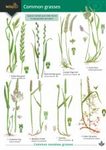
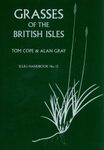
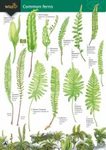
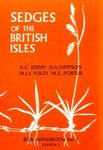
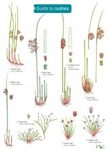


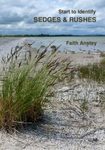
![Start to Identify Grasses [enlarged edition]](http://mediacdn.nhbs.com/jackets/jackets_resizer_medium/24/249274.jpg?height=150&width=112)







